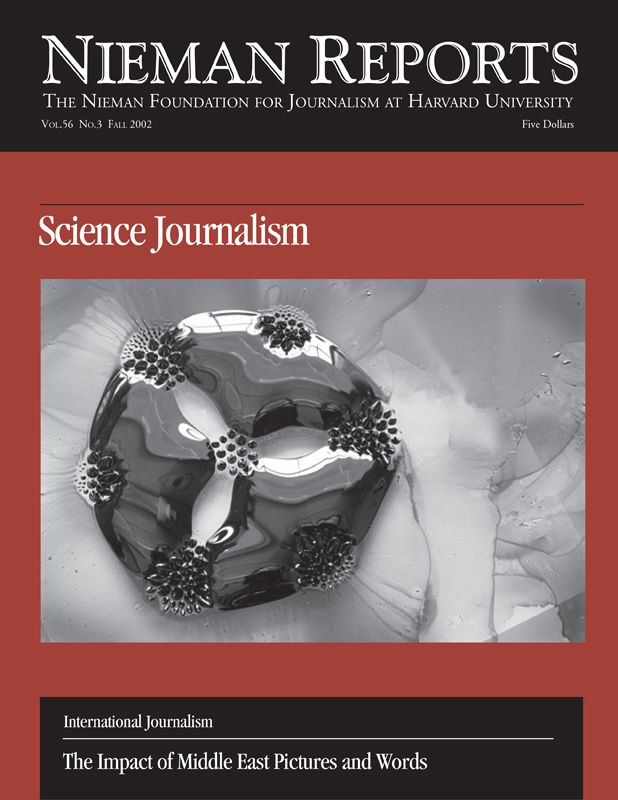With more newspapers now using graphics to display information, John Maxwell Hamilton, dean of the Manship School of Mass Communications at Louisiana State University, along with several colleagues, examined how accurately USA Today—a leader in the graphics revolution—reported information in its frontpage Snapshots. Their article describes what they found.
Russell Frank, who teaches journalism at Penn State University, looks at the various ways in which newspapers that publish narrative articles explain reporting and storytelling techniques to their readers. Despite these attempts at accountability, Frank writes, “the ultimate message … is: trust us, our reporter has done the legwork, it all checks out.” But Frank wonders if readers should always be so trusting.
“The printed word virtually defines our society,” writes Ralph Hancox, who is a visiting professor emeritus at Simon Fraser University in British Columbia, Vancouver. Yet the printed word comes at high price. It is, Hancox notes, “arguably the most egregiously wasteful and obsolete industrial process of our time.” He describes the devastation of natural resources and accumulation of waste that is part of the process of printing news.
Russell Frank, who teaches journalism at Penn State University, looks at the various ways in which newspapers that publish narrative articles explain reporting and storytelling techniques to their readers. Despite these attempts at accountability, Frank writes, “the ultimate message … is: trust us, our reporter has done the legwork, it all checks out.” But Frank wonders if readers should always be so trusting.
“The printed word virtually defines our society,” writes Ralph Hancox, who is a visiting professor emeritus at Simon Fraser University in British Columbia, Vancouver. Yet the printed word comes at high price. It is, Hancox notes, “arguably the most egregiously wasteful and obsolete industrial process of our time.” He describes the devastation of natural resources and accumulation of waste that is part of the process of printing news.



